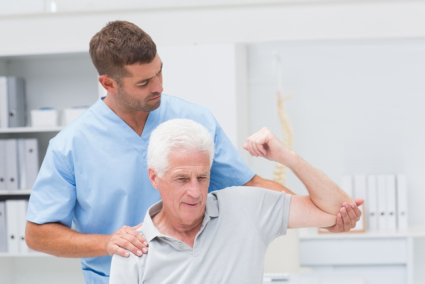Elder Care: 10 Physical Changes to Expect in a Senior Loved One

While the senior years cap the achievement and wisdom in life, they also hold the challenges of changes. It’s because of these changes that most seniors will need home health services in Philadelphia, Pennsylvania. Consider the following physical changes in an aging person:
- Skin
The skin will eventually appear thinner, more fragile, and less flexible. Additionally, because the natural skin oils will produce lesser, the complexion looks drier and feels itchier. The skin changes pose risk of wounds to diabetic patients. Gladly, a home health care service is able to help alleviate wound troubles of diabetic seniors. - Skeletal and muscular system
Naturally, the bones reduce their density as the years go by. The muscles also shrink and grow weaker, triggering bone and muscle-related illnesses. The joints also can be easily torn and inflamed, putting the senior at risk for chronic pains. - Mobility / balance
Due to illnesses and deterioration in bones, muscles, and joints, seniors can experience chronic pain that affects their mobility and balance. With these pains, the elderly can be at risk of falls and fall-related injuries. - Shape of body
Have you wondered why the older the person, the smaller they get? It’s part of the natural effects of aging. As the skeletal and muscular densities get thinner, so are their body sizes. - Face
The face, which is the first part to be seen, can be decorated with wrinkles and changes of facial contours. Additionally, as the skin texture tightens and dries, sagging also happens. - Oral faculties
A senior’s teeth can grow weaker and more brittle, while the mouth produces lesser saliva, triggering gum diseases. This is the reason why oral hygiene is still imperative in senior age. Hygiene care can be extended by home care services in Pennsylvania. - Hair, nail
The senior’s hair becomes thinner and weaker, which leads to more itchiness. The nails, on the other hand, get drier. - Eyes
The vision of a senior person becomes less clear, as the eyes get drier and blurrier. The lens declines with age and develops inaccuracy of focus. - Taste & smell
The senior’s sense of taste and smell becomes less pronounced, putting them at risk to appetite loss, which could lead to malnutrition. - Bowel and bladder
Problems in relieving bowel and bladder also occur at old age. Common scenarios include constipation, urinary frequency, and difficulty urinating.
It’s important to know how much a senior person can change physically. Being aware that such changes occur and happen naturally can prepare the family members on what interventions to do to help their senior loved one still live a quality elderly life.
When it comes to assisting a senior person at home, along with taking care of their overall health, our team at Amazing Care Home Health Services, LLC can help you with that. We have highly skilled professionals who are trained to attend to senior’s needs compassionately and properly. Contact us to set an appointment.
Source: https://www.medicinenet.com/senior_health/article.htm#what_changes_occur_in_the_body_as_we_age



Leave a Reply